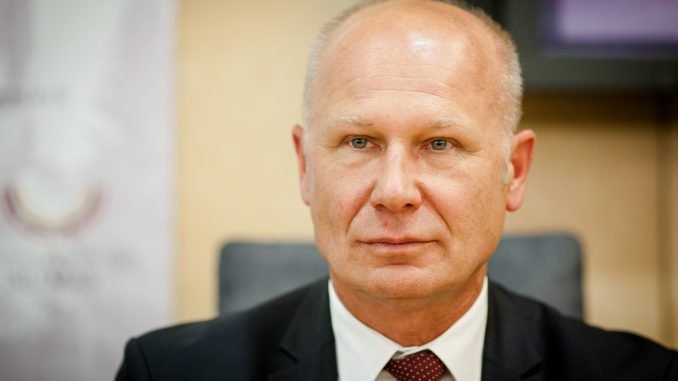
According to the deputy minster, so far there has been much uncertainty about refugees that will be arriving in Lithuania and most of it will be cleared only once they reach Lithuania. The European Commission would like for the relocated migrants to live in the receiving country at least for five years, said the deputy minister, but added that this has not been finally approved and it is difficult to say if such a provision will enter into force.
According to Šešelgis, those migrants who are employed, own a business and have successfully integrated stay in Lithuania for longer.
Next, the official said that after three months at the Refugee Reception Centre in Rukla, each person or family will be assigned a coordinator who will help them deal with various matters in municipalities. The coordinators will be providing all the data about refugees via the information system based on a certain form. If refugees meet all the necessary requirements, they will continue to receive funding. It was reported that the EU will allocate EUR 6,000 per refugee for their journey. How much money a particular family is entitled to receive will depend per each individual case. It was earlier reported that EUR 500-600 would be allocated per refugee monthly.
The deputy minister said that individuals, organisations and business representatives have shown interest in housing and employing refugees.
Currently 30 persons are accommodated at the Refugee Reception Centre in Rukla, but the number is constantly changing. It is projected that 160 refugees can be housed at the centre at a single time. Refugees will have to register in Lithuania, they will be allowed to spend a month in another country but will have to inform coordinators (Caritas or the Red Cross). They will lose benefits if they do not return.
Šešelgis explained that funding is targeted, intended for the integration of a specific person and if that person leaves the country and does not return, then the funds will not be used and will have to be returned.
Lithuania will receive half of the funding for the integration of refugees in advance, which is expected to be sufficient in the first stage.
The deputy minister of social security and labour emphasised that the question of the Arabic language translators remains relevant at the Refugee Reception Centre in Rukla, but hoped it would be solved, especially as the Ministry of Education and Science is working on it. Refugees will also have an opportunity to take part in special courses at the Labour Exchange.
As reported, Lithuania will have to accept 1,105 refugees within two years.

Be the first to comment